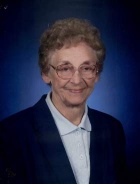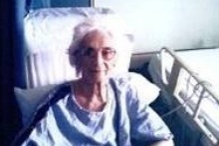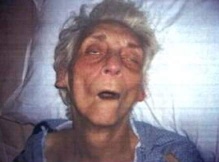Alice's Timeline
"What's happening to me?"

July 2
Alice has neck pain and goes to the emergency room, where she is prescribed cyclobenzaprine (Flexeril) for muscle spasm. She does not take it. A few days later, she is told by her neurologist at a routine appointment to never take the medication due to adverse side effects. She throws it away.
July 12
Alice has pain and swelling in her right leg.
July 13
Alice is admitted to the hospital, where tests indicate gout.
July 17
Alice is discharged to rehab due to difficulty ambulating.
July 28
Alice's daughter, Mary, meets with staff to plan discharge to home.
July 29
Mary notices Alice is experiencing hallucinations, nausea, and malaise. She discovers that Alice has been taking cyclobenzaprine, prescribed by the hospital doctor and continued by the rehab doctor. Per Mary's demand, the medication is stopped.

July 30
Hallucinations continue with psychosis, noted adverse effects of cyclobenzaprine. She feels that her life is in danger and acts out, and has no appetite or thirst.
August 3
Alice becomes incontinent and fearful, with a severely altered mental state. She is admitted to the hospital for severe dehydration and MRSA is detected.
August 6
Alice is discharged from the hospital back to rehab. She is severely disoriented and falls, injuring her back, hand, and foot. She goes to the emergency room for x-rays, then returns to rehab.
August 9
Alice is unable to eat, is incontinent, and has severe abdominal and back pain. Mary asks if she has been tested for a urinary tract infection (UTI). Alice's psychosis escalates.
August 10
Tests indicate that Alice has a serious UTI. Alice is taken by ambulance to the hospital. At this stage, Alice weighs 132 pounds.
August 13
Mary is told that Alice's medical issues are psychiatric and that she should be discharged to a psychiatric facility. Haldol, an anti-psychotic medication, is prescribed, despite serious side effects such as confusion, loss of appetite, difficulty walking and speaking, and tremors, all of which Alice experienced while taking the drug. Mary refuses the transfer and requests an emergency consult with the Chief of Geriatrics.
August 18
The geriatrician determines that Alice is not delusional. He recommends removal of all adverse medications. In his opinion, the damage done by cascading medications has likely caused irreparable damage in Alice due to her emaciated state.

August 19
Mary is told by the hospital that Alice's white blood cell count is alarmingly high, and she is advised to sign a "Do Not Resuscitate" (DNR) order. Alice is now suffering from C. diff, and apnea begins.
August 20
Alice now weighs 108 pounds. She has been unable to eat or drink for days. Mary requests a Hospice evaluation but is denied by the hospital doctor.
August 21
Mary again requests Hospice assessment but is denied again. Mary takes her request to hospital administration and it is granted. Hospice staff determine that Alice is near death.
August 22
Alice is discharged from the hospital to Hospice.
August 24
Upon arrival at Hospice, Alice has MRSA, a UTI, C. diff, and VRE, an often fatal infection.
August 29
Alice dies of sepsis at Hospice, just six weeks after her neck pain began.
